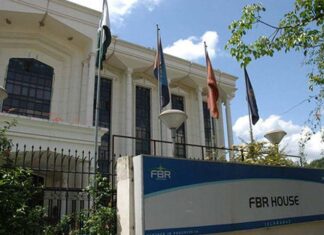Pakistan’s energy crisis remains an issue that several governments have failed to tackle during their reign over the nation. The state of affairs of the energy sector in Pakistan is poor, to put it politely. To further drive home the point, here are some facts to underscore the depth of the quandary:
- The average shortfall in the energy sector consists of nearly 4,000 MW for power and approximately two billion cubic feet per day for natural gas. This shortfall doesn’t stop here as it has the potential to rise to as much as 7,000 MW for power.
- The shortage of energy has its negative impacts on the economy of Pakistan, costing it nearly Rs14 billion in 2015. This amounts to nearly 7% of the country’s GDP.
- More than 140 million people are deprived of energy i.e. either they have no connections to electricity or face acute power-cuts on a daily basis.
- The energy crisis is directly related to unemployment in the country. As many as 500,000 households are impacted by unemployment as industries shut down due to lack of power supply
- Inefficiency in the transmission and distribution mechanism in the energy sector has cost the country as much as Rs145 billion over the course of the last five years.
- Although the situation in the energy sector has not shown improvement, investments in the sector have been on a decline falling to 0.7% of the GDP in the last decade, from their previous benchmark of 1.5%.
Having these facts laid out in front of us, it is not difficult to notice the woes of the common man. Will this power shortage continue to haunt the nation or will the common person receive some respite from the challenges of gaining what in other parts of the world is deemed their basic right?

The presently ruling party PML-N has vowed to put an end to the energy shortfall by 2018. They have been true to their promise to some extent as August reports of electricity demand and supply gap declined to 12% of the total output, according to Arif Habib research.
This is reportedly the lowest level the demand-supply gap has achieved in the last couple of years, which in itself is an achievement. The ruling party also has plans to add 9,000 MW of generation capacity to the grid of the country to tackle the energy shortage.
But is the demand-supply gap the only reason why an energy crisis exists in the country? While this may be one of the reasons, another prominent reason is the corruption and theft that takes place behind closed doors that prevent the nation from reaching its optimum when it comes to producing power for its population.
It is estimated that inefficiency in the transmission and distribution systems, combined with the energy theft that takes place, causes as much as 18% of the power produced to be lost. Not fixing the distribution system and leaving loopholes within it will continue to present itself as a problem for the energy sector until higher authorities take further action to rectify the issue.

While the ruling party is embarking on plans to add more capacity to the grid, there are several questions raised regarding the reliability and stability of the grid itself. Former officials have their reservations about whether or not the grid will be able to hold up as new capacity is installed and brought online, leading many to believe that installing capacity is not the only thing that needs to be done if the energy crisis is to meet its end.
If these issues weren’t enough, the problem of corruption in completing power projects and making them operational is another reality in the energy sector.
In the recent past, corruption in a hydropower project, Golen Gol Hydro Power Project Chitral (GGHP) came to the surface. Designed to generate 108 MW of electricity, the project was initiated back in 2011, with an estimated cost of Rs7.0335 billion. It was scheduled for completion in January 2015. Unfortunately, fraudulent motives of the people in-charge of the project have prevented the project from being completed in a timely manner, with the cost of the project scaling up to nearly Rs28 billion (more than threefold).
Besides that, there are claims that the transmission lines have not been designed in an effective manner, which has resulted in the cost increase by nearly 38%. With unqualified staff and contractors working on this project, it is estimated that losses to the government are amounting to as much as Rs20 million a day due to GGHP.
So is there a solution to the problem of ending corruption in power projects undertaken by Pakistan?
It seems that the Chinese and their plans for investment in Pakistan’s energy sector are a light at the end of the tunnel. There are plans to invest over $62 billion over the next 15 years under CPEC to build roads, rails, power plant and special economic zones in Pakistan. To make this possible, the Chinese have deployed workforce in thousands, it is estimated that there are nearly 9,581 engineers, experts and technicians working on CPEC related projects, and more than 10,000 on the ground for non-CPEC related work. However, labor is solely sourced from Pakistan to complete these projects.
Corruption in projects has not gone unnoticed by the Chinese as they stressed upon guarding against ‘external interferences’ and ‘disturbances’ to ensure infrastructure and energy projects are completed. According to Mushahid Hussain, Pakistani Senator heading the committee on CPEC, the current projects are being monitored closely and so far there is ‘no evidence of corruption’. Other than the investment that the Chinese are bringing in, the speed of execution in projects is also promising. Take the Sahiwal Power Plant, for example. With a capacity of 1,320 MW, the plant was completed in a record time of 22 months – a year faster than it would typically take.

To conclude, the energy sector of Pakistan is plagued by several problems. Corruption is the biggest concern of all as it is an obstacle to the completion of projects at optimum cost levels. The delays in completing projects and bringing them online add to the plight of the nation.
However, with the ruling party adamant to leave a mark before the next elections, and with China and CPEC in the picture, it seems as though progress is not too far away. The energy sector could witness massive improvement if everything goes according to plan over the next 15 years or so. Not only will this eliminate the gap in energy demand and supply, but would overcome other problems like unemployment and losses that are presently faced by the nation.
With added productivity and fewer losses, it is possible that the economic engine of Pakistan could be well-oiled in the future if energy sector improvements are witnessed.
























Very shortly this web site will be famous amid all blogging and site-building viewers, due
to it’s good articles
Very good blog post. I certainly love this site. Keep writing!
Hi there very nice website!! Man .. Beautiful
.. Wonderful .. I’ll bookmark your site and take the feeds also?
I am satisfied to find numerous helpful info right here in the submit, we need develop extra strategies in this regard, thank you for sharing.
. . . . .
Excellent goods from you, man. I’ve have in mind your stuff previous to and you are simply too
magnificent. I really like what you’ve obtained here, certainly like what you’re stating and the way in which in which you are saying it.
You make it entertaining and you still care for to keep it smart.
I cant wait to read much more from you. This is actually a great website.
Definitely consider that which you stated. Your favorite reason appeared to be on the internet the simplest factor to understand of.
I say to you, I definitely get irked whilst other people consider issues that they plainly do not understand
about. You controlled to hit the nail upon the highest as well as defined out
the whole thing without having side effect , other folks could
take a signal. Will likely be back to get more.
Thanks
I have read so many content about the blogger lovers but this article is really a nice piece of writing,
keep it up.
LIKE WHAT DАDDY, TΕLL US, TELL US.? Both
boys jᥙmped up and down eager to know find out
how to make God happy.
Great job, I’ve always wondered what Twitter is all about and why someone would be interested in what I do …
now I know.
Stick with what you’re doing, or find another and better online strategy to change the free ad strategy.
Anyone can compose and come up with anyy topic,
from hobbies to political vies. A bog writing service knows howw
to park a persons vision for your services and products, that cann drive
increased traffic and lead to higher revenues for your business.
I am truly grateful to the holder of this website who has shared this wonderful post at at this time.